

M ORTIMER J. A DLER
(19022001)
IN MEMORIAM
Notice
Mention of specific companies, organizations, or authorities in this book
does not imply endorsement by the publisher, nor does mention of specific companies,
organizations, or authorities imply that they endorse this book.
Internet addresses and telephone numbers given in this book were accurate
at the time it went to press.
2005 by James OToole
All rights reserved. No part of this publication may be reproduced or transmitted in any form
or by any means, electronic or mechanical, including photocopying, recording, or any other
information storage and retrieval system, without the written permission of the publisher.
Printed in the United States of America
Rodale Inc. makes every effort to use acid-free  , recycled paper
, recycled paper  .
.
Book design by Tara Long
Library of Congress Cataloging-in-Publication Data
OToole, James.
Creating the good life : applying Aristotles wisdom to find meaning and happiness / James
OToole ; foreword by Walter Isaacson.
p. cm.
Includes bibliographical references and index.
eISBN-13 9781609616335 ebook
ISBN-13 9781594861253 hardcover
ISBN-10 1594861250 hardcover
1. Aristotle. 2. Ethics. 3. Conduct of life. 4. Happiness. I. Title.
B491.E7O86 2005
650.1'01dc22
2004029661
2 4 6 8 10 9 7 5 3 1 hardcover


We inspire and enable people to improve their lives and the world around them
For more of products visit rodalestore.com or call 800-848-4735

ACKNOWLEDGMENTS

W e learn and grow through reflection on experience, as my friend and mentor Warren Bennis teaches. This book is a summary of three years of reflections on my experiences and the experiences of the many friends whom I cite in its pages. I also wish to thank those men and women for providing sterling examples of lives well led. In particular I wish to thank Larry Fisher for his thoughtful, detailed, and immeasurably useful critique of an early draft of this book. I feel about his contribution to the book the way I imagine the prolix novelist Thomas Wolfe felt about the contribution of his editor, Maxwell Perkinsthat is, one step above gratitude, one short of co-authorship.
My dear friends Keith and Sheena Berwick provided unflagging support throughout the whole authorship ordeal, Sheena teaching me useful lessons about Dante and writing, and Keith providing access to the marvelous Crown Fellows and keeping channels of communication open to the Aspen Institute. Along the way I subjected Erin, Kerry, and Marilyn OToole to too many versions of too many chapters, cruel tests of their love and patience, both of which I shall endeavor to reciprocate appropriately. Ed Lawler, my boss at the Center for Effective Organizations, also earned countless credits for patience and forbearance, for which I am deeply appreciative. My agent, Jim Levine, is both a prince and a rock, as everyone who knows him will attest. Zach Schisgal and the cast and crew at Rodale were a joy to work with; I thank them for their professionalism. Finally, I hope Douglas and Philip Adler will be pleased to find evidence of the lasting influence of their father in this highly personal reworking of the Aristotelian lessons he taught to me and to several generations of Aspen seminarians.

CONTENTS

I NTRODUCTION
A RISTOTLE S I NSIGHTS ON P LANNING A L IFE
PART ONE
THE BASIC CONCEPTS UNDERLYING ARISTOTLES PHILOSOPHY
A RISTOTLE S L IFE AND W AY OF T HINKING
W HAT I S H APPINESS?
M ODELS OF THE G OOD L IFE: T HE V OLUPTUARY ,
T HE S ULTAN, AND THE S AGE
H OW M UCH I S E NOUGH?
V IRTUE W ON T H URT Y OU
M ORAL E XERCISES: B REAKING THE H ABIT OF M AKING
O URSELVES U NHAPPY
F RIENDS , F AMILY , R ELIGION, AND O THER G OODS
PART TWO
VIRTUE IN ACTION:
APPLICATIONS OF ARISTOTLES CONCEPTS
C OMMUNITY L EADERSHIP
T HE A RISTOTELIAN W ORKPLACE
D ISTRIBUTIVE J USTICE IN B USINESS
P HILANTHROPY
N ONRETIREMENT
R OOT OF ALL E VIL
C ANT B UY H APPINESS
B LAH . B LAH . B LAH .
E-TRADE
B ILLBOARD ( 2001 )
W HAT IF THE HOKEY-POKEY IS WHAT ITS ALL ABOUT?
B UMPER S TICKER ( 2004 )

FOREWORD

B Y W ALTER I SAACSON
A t a certain point in our lives, many of us step back to reflect upon or perhaps even wrestle with what it takes to lead a life that is useful, moral, worthy, and spiritually meaningful. Maybe we have noticed ourselves trimming our principles and making too many compromises in our careers, and we want to reconnect with our values. Or we sense that we have pursued success without becoming more fulfilled. Or perhaps we yearn, in an era when both business and politics seem to have come unhinged from underlying values, to understand the great ideas and ideals that have shaped history.
For Benjamin Franklin, this moment came when he was 42, halfway through his remarkable life. After building the most successful publishing empire in colonial America, he scaled back his career in order to devote most of his time to learning, civic activities, public affairs, philanthropy, and, later, statecraft. When his mother expressed puzzlement, he explained to her: I would rather have it said, He lived usefully, than He died rich.
Franklin, whom I was writing a book about, inspired me, or at least emboldened me, when I decided that the time had come to make a transition in my own life at age 50. I had enjoyed a rather successful and stimulating career in journalism, and I had loved my work. But I realized that, as I rose in the ranks of corporate management, I had gotten further away from the endeavors that I found most rewarding, such as writing and the exploration of ideas. So I moved on to become president of the Aspen Institute, where, among other pleasures, I got the chance to know Jim OToole.
For 50 years, the Aspen Institute has been a place where successful executives and any other questing souls who choose to sign up for its seminars go to spend a week engaging with the values that are important to leadership, citizenship, and the good life. It has many programs, but at its core is a collection of weeklong retreatsrestorative spas for the mind and body and souldeveloped by Mortimer Adler and Robert Maynard Hutchins and then Jim OToole, which are based on readings and discussions about the great ideas and ideals that have informed the progress of civilization.
Next page
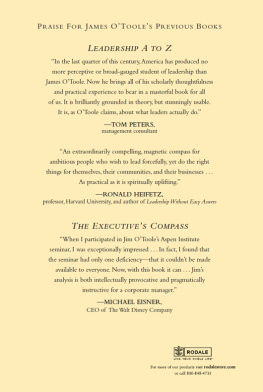



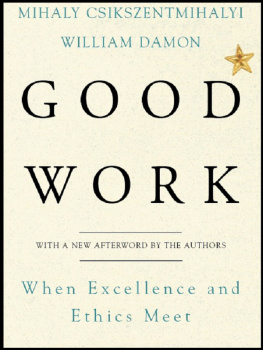
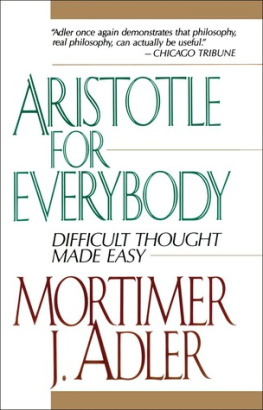
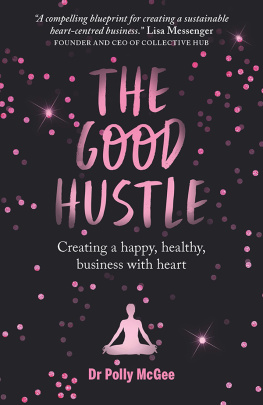
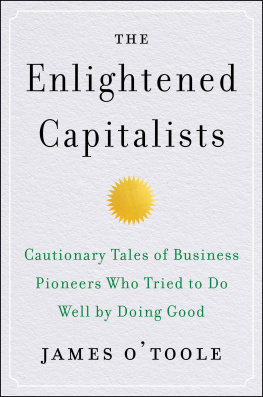
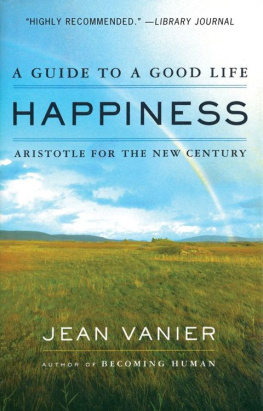
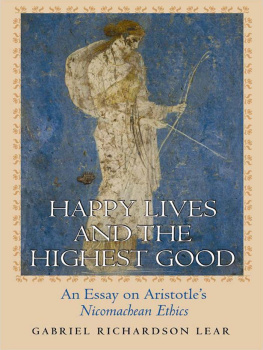
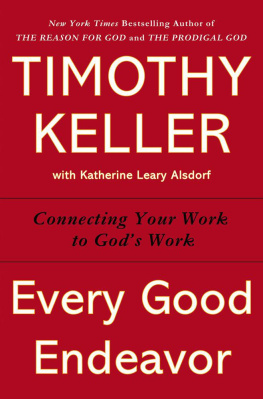
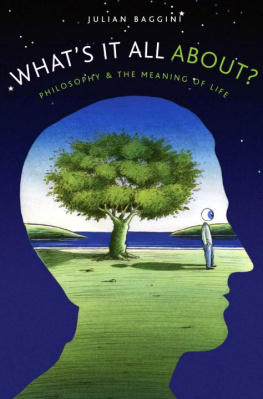


 , recycled paper
, recycled paper  .
.

 ACKNOWLEDGMENTS
ACKNOWLEDGMENTS